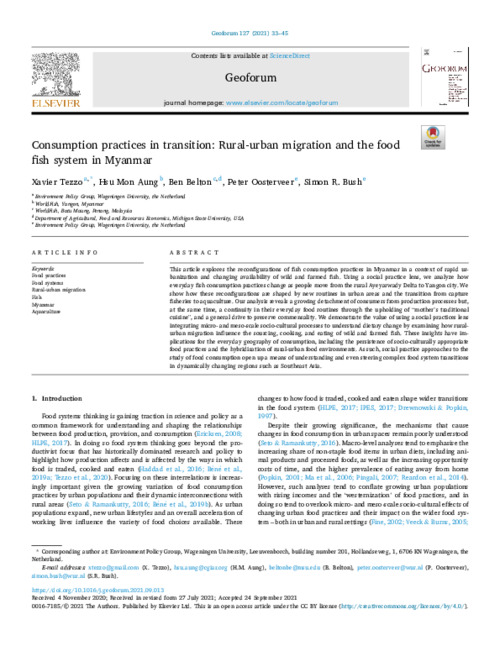Consumption practices in transition: Rural-urban migration and the food fish system in Myanmar
Abstract
This article explores the reconfigurations of fish consumption practices in Myanmar in a context of rapid urbanization and changing availability of wild and farmed fish. Using a social practice lens, we analyze how everyday fish consumption practices change as people move from the rural Ayeyarwady Delta to Yangon city. We show how these reconfigurations are shaped by new routines in urban areas and the transition from capture fisheries to aquaculture. Our analysis reveals a growing detachment of consumers from production processes but, at the same time, a continuity in their everyday food routines through the upholding of “mother’s traditional cuisine”, and a general drive to preserve commensality. We demonstrate the value of using a social practices lens integrating micro- and meso-scale socio-cultural processes to understand dietary change by examining how rural-urban migration influence the sourcing, cooking, and eating of wild and farmed fish. These insights have implications for the everyday geography of consumption, including the persistence of socio-culturally appropriate food practices and the hybridisation of rural-urban food environments. As such, social practice approaches to the study of food consumption open up a means of understanding and even steering complex food system transitions in dynamically changing regions such as Southeast Asia

